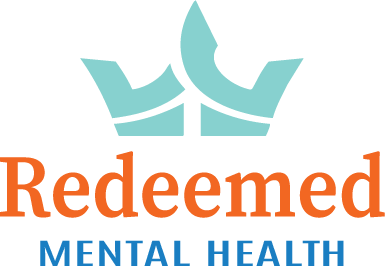ACT Therapy in Newport Beach, CA
A Real Approach to Getting Unstuck and Moving Forward
At Redeemed Mental Health, we don’t believe in overcomplicating things. Life is hard enough. If you’re feeling stuck, overwhelmed, or weighed down by stress, trauma, or old habits, ACT therapy might be exactly what you need.
Acceptance and Commitment Therapy (ACT) helps you stop fighting with your thoughts and start living your life—based on what truly matters to you. It’s not about pretending everything’s okay. It’s about making room for the hard stuff, choosing your personal values, and taking steps toward the life you want.
What Is ACT Therapy?
ACT therapy, short for Acceptance and Commitment Therapy, is a type of modern behavior therapy rooted in contextual behavioral science and clinical psychology. Instead of trying to erase uncomfortable feelings or control your thoughts, ACT helps you accept what you can’t change and commit to action in the areas that matter most.
Think of it like this: ACT teaches you how to stop getting yanked around by your thoughts and emotions. You learn to stay grounded in the present moment, even when things feel messy, painful, or uncertain. From there, you can make choices based on what truly lines up with your personal values—not just what feels easiest in the moment.
ACT vs. Traditional Cognitive Behavior Therapy
Unlike traditional cognitive behavior therapy or behavioral and cognitive therapy, ACT doesn’t focus on challenging or changing your thoughts. Instead, it focuses on building psychological flexibility—your ability to stay present, open, and willing to move forward even in the face of discomfort.
If CBT is about changing your thoughts to feel better, acceptance and commitment therapy is about changing your relationship with your thoughts so they don’t control your life anymore.
Six Core Processes of ACT Therapy
When you work with an ACT therapist at Redeemed, you’ll learn practical tools that fall into six core categories, all designed to build your psychological flexibility:
Acceptance – Make space for uncomfortable feelings instead of fighting them.
Cognitive Defusion – Learn to observe your thoughts without getting hooked by them.
Present Moment Awareness – Stay grounded in the here and now instead of getting caught up in the past or future.
Self-as-Context – See yourself as more than just your thoughts or emotions.
Values Clarification – Identify what truly matters to you in life.
Committed Action – Take meaningful steps toward your goals, even when it’s hard.
These ACT interventions are simple but powerful. Over time, they help reduce stress and pain symptoms, improve relationships, and reconnect you with the life you want to live.
Who Is ACT Therapy For?
Acceptance and Commitment Therapy is helpful for a wide range of mental health struggles, including:
Chronic pain
Anxiety and depression
PTSD and trauma recovery
Substance abuse
Life transitions and burnout
Low motivation or self-worth
Whether you’ve been in therapy before or this is your first time reaching out, ACT is a down-to-earth approach that meets you where you’re at. It’s about making room for life—with all its ups and downs—and still choosing to move forward.
ACT Therapy at Redeemed Mental Health
We don’t just toss around therapy buzzwords. At Redeemed Mental Health, you’ll work with experienced, compassionate mental health professionals who understand how hard life can get—and how powerful the right support can be.
Dr. Andrea Wagner, our founder and Chief Clinician, leads a team of licensed therapists who specialize in ACT therapy, behavior therapy, and other evidence-based approaches. Whether you’re dealing with chronic pain, substance abuse, or just feel like your mind is working against you, we’ll help you learn the skills to show up for your life again.
You’ll get a treatment plan that’s tailored to your goals, not just your symptoms. Whether in-person or virtual, our sessions are focused, practical, and built to help you create real, lasting change.
Ready to Make a Shift?
You don’t have to have it all figured out. You just need to take the first step.
If you’re tired of being stuck and ready to try something different, ACT therapy might be the right fit. Let’s talk about how acceptance and commitment therapy at Redeemed Mental Health in Newport Beach can help you reconnect with your life—and the version of yourself you want to be.
Frequently Asked Questions About ACT Therapy at Redeemed Mental Health
What is “commitment therapy acceptance”?
Commitment therapy acceptance is a core concept in Acceptance and Commitment Therapy (ACT). It means learning to stop fighting your thoughts, feelings, and physical sensations—especially the uncomfortable ones—and choosing to move forward anyway. Instead of avoiding pain or waiting until you “feel better” to take action, ACT helps you accept what’s out of your control and commit to doing what matters to you now.
How does ACT help with uncomfortable physical sensations?
Many people come to therapy overwhelmed not just by thoughts or emotions, but by stress-related physical sensations like tightness in the chest, tension, restlessness, or fatigue. ACT helps you relate to those sensations differently—acknowledging them without letting them run the show. Through mindfulness and acceptance, you learn to stay present and make value-based choices, even when your body is sending uncomfortable signals.
Is ACT therapy only for mental health conditions like anxiety or depression?
No, ACT is useful for much more than anxiety or depression. While it’s great for those and other mental health challenges, it’s also highly effective for people dealing with chronic pain, substance abuse, or just feeling stuck in life. It’s about helping you reconnect with your values and take meaningful action—even when life is throwing you curveballs.
Do I have to talk about painful memories in ACT therapy?
ACT isn’t about digging into the past unless it’s helpful. Unlike traditional talk therapy, it focuses more on your relationship with your thoughts and physical sensations than on analyzing where they came from. You’ll spend more time building skills for living in the present moment and taking action based on what matters to you now.
What’s the difference between ACT and other therapies like CBT?
CBT (Cognitive Behavior Therapy) often focuses on changing negative thoughts. ACT, on the other hand, focuses on commitment therapy acceptance—letting thoughts and feelings be, while taking action anyway. ACT is more about increasing your psychological flexibility, which means you’re better able to adapt, cope, and stay aligned with your values, even during life’s toughest.























